equality | is greater than | division


— William Blake (1757-1827)
— G. K. Chesterton (1874-1936)
On 21 October 2019, I’m slated to give a talk at the #FITCSpotlight ‘Design Ethics‘ event (making this my 9th appearance at an FITC event in the past 14 years). Here’s an abstract of my presentation…
See What I Mean?
We live in uncertain times on a rapidly warming, fragile, and over-stressed planet. Tumultuous political, social, ecological, and economic instability — along with information overload, an overwhelming pace of change, threatened eco-systems, and staggering social imbalances — threaten our individual sense of purpose, place, and wellbeing. For the majority of our planet’s 7.7 billion human beings, the world remains a place of inequality, injustice, and suffering; even while the privileged of our “developed world” frolic in a buffet of excess, with gluttonous over-consumption as the daily modus operandi.
It’s been said that designers and artists can see and observe differently, more acutely than others — looking deep inside issues, perceiving hidden relationships and causal patterns, possessing an innate consciousness and natural tendency to question and identify needs in “the big picture.” As today’s world has been largely shaped by designers and intentional “form-givers” of the past few generations, are our creative professions even aware of the considerable responsibility that accompanies what we do, and of the complex forces our work exerts on aesthetic, technological, social, environmental, economic, and political fronts?
— Bertrand Russell (paraphrased)
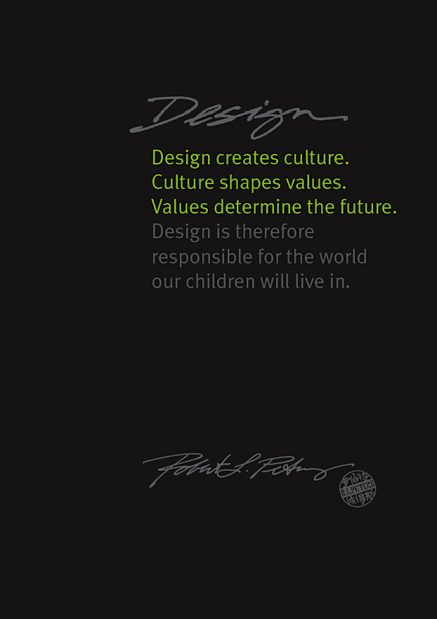
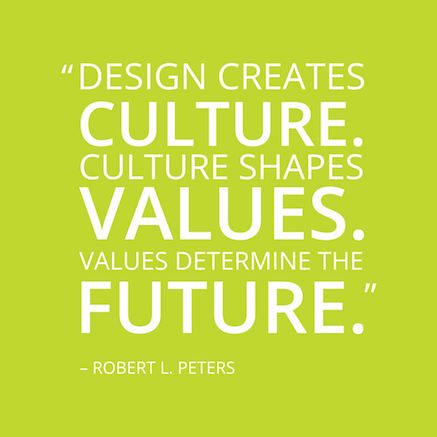
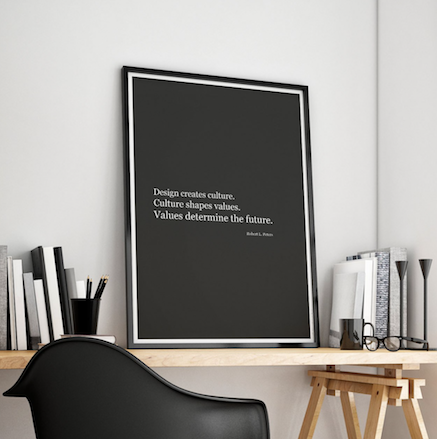
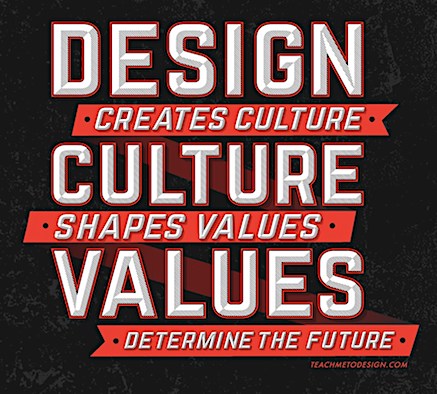
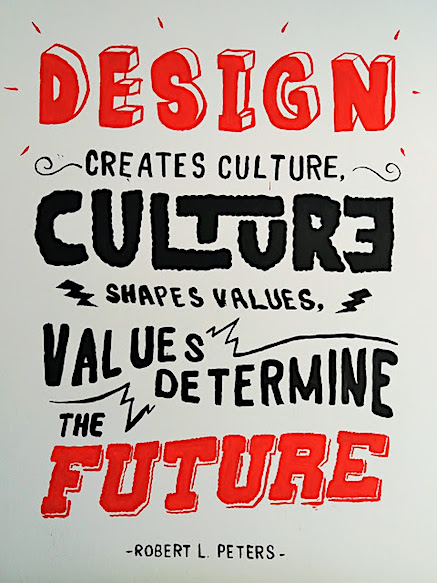
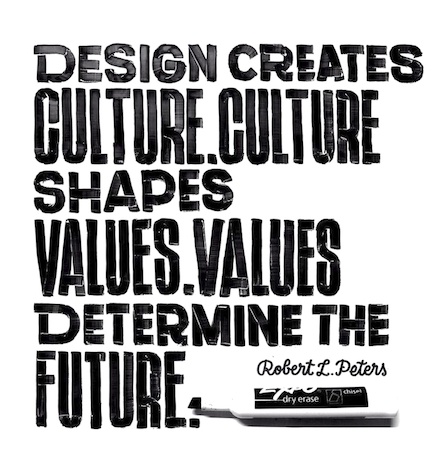
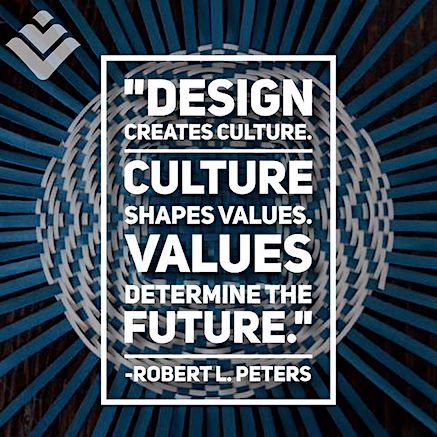
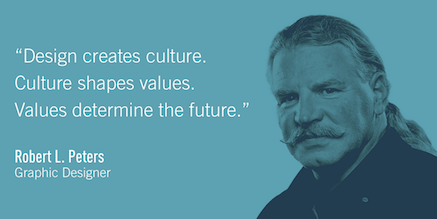
Seemingly everywhere.
I first used the line “Design creates culture. Culture shapes values. Values determine the future…” in a conference lecture in the mid-or-late 1990s.
That simple statement has since spread through the Interwebs like some sort of memetic rogue virus, repeated relentlessly by “famous quotes” sites, “wallpaper generators” and the like — a quick Google search brings up literally thousands of graphic “treatments” of this — on sites around the planet devoted to graphic design, yes; but also fashion, interior design, poster and decor sites, product design, architecture, engineering, strategic planning, marketing, medicine, linguistics, social work, advertising campaigns, etcetera, etc…
In fact, hardly a month goes by without someone, somewhere asking me for permission to use this now-famous statement for their own purposes — and of course I grant them full permission. While being widely quoted is certainly flattering, it does carry with it the caution to always “watch what you say.” (-:
For the record, I initially stated the “quotable quote” in question along with the advisory conclusion re: the power of design (and the ensuing responsibility of designers): “Design is therefore responsible for the world our children will live in.”
The top image is my own, from a book on design published in China. The images following are a tiny sample of the many “treatments” found online… (the Mao Clinic even offers it as “downloadable wallpaper” — click image below).
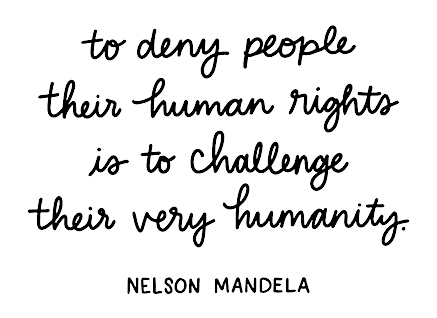
Paris, France
70 years ago today, on 10 December 1948, the Universal Declaration of Human Rights was adopted by the United Nations General Assembly at Palais de Chaillot, Paris. The Declaration arose directly from the experience of the Second World War and represents the first global expression of rights to which all human beings are inherently entitled. The date of 10 December was established as Human Rights Day in 1950, and has been commemorated annually around the world on this date ever since.
These days, the advancement and promotion of worldwide human rights are confronted by growing nationalism, a widespread misinformation epidemic, and the ascendency of identity politics which draw strength from ethnic or religious conflict. All the more reason to celebrate (and disseminate) comprehensive statements of inalienable human rights, I say!
The Universal Declaration of Human Rights is a call to freedom and justice for people throughout the world. Many consider the Declaration to be the most important document ever written, essentially “the international Magna Carta of all mankind.” As such, it has also become the most translated document in the world.
Do you know your human rights? Read the full text of the Universal Declaration of Human Rights here, or download a PDF of the text in English here. Watch an excellent type-and-graphic rendering of the Declaration on Vimeo here.